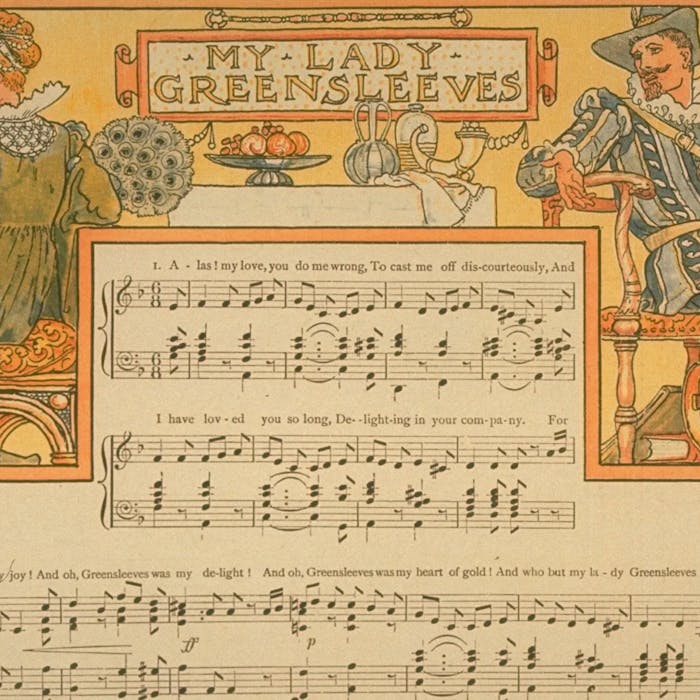
Greensleeves - the classic English folk song
Greensleeves is a traditional English folk song, sometimes believed to have been composed by King Henry VIII in the 1530's, for his lover and future queen Anne Boleyn. However, the Italian style of composition reached England later, and so Greensleeves is more likely to be Elizabethan in origin.
A formal claim to its origin may more plausibly be traced to a Richard Jones who, in 1580, registered a printed broadside ballad entitled A Newe Northen Dittye of ye Ladye Greene Sleves at the London Stationer's Company, though six more variants of the ballad followed by others in less than a year.
The lyrics themselves lend to multiple interpretations. One is that Lady Green Sleeves may have been a 'working girl', because green had connotations with promiscuity at the time. Another is that Lady Greensleeves was incorrectly assumed to be promiscuous, and that this is why her rejections are claimed by the singer in the song's narrative to be 'discourteous'.
The tune became popular for musical manuscripts and publications in the 16th and 17th centuries. It became associated with Christmas and New Year from as early as 1686. By the nineteenth century, almost every printed collection of Christmas carols included some version of words and music together, most of them ending with the refrain "On Christmas Day in the morning".
The song's early popularity is reflected in its inclusion in Shakespeare's The Merry Wives of Windsor (first published in 1602). The character Mistress Ford refers twice to the 'tune of Greensleeves' and Falstaff exclaims 'Let the sky rain potatoes! Let it thunder to the tune of 'Greensleeves'!
One of the most popular orchestral arrangements is by Ralph Vaughan Williams in his four-minute orchestral miniature Fantasia on Greensleeves, first performed in 1934.
Further reading
Links to external websites are not maintained by Bite Sized Britain. They are provided to give users access to additional information. Bite Sized Britain is not responsible for the content of these external websites.
